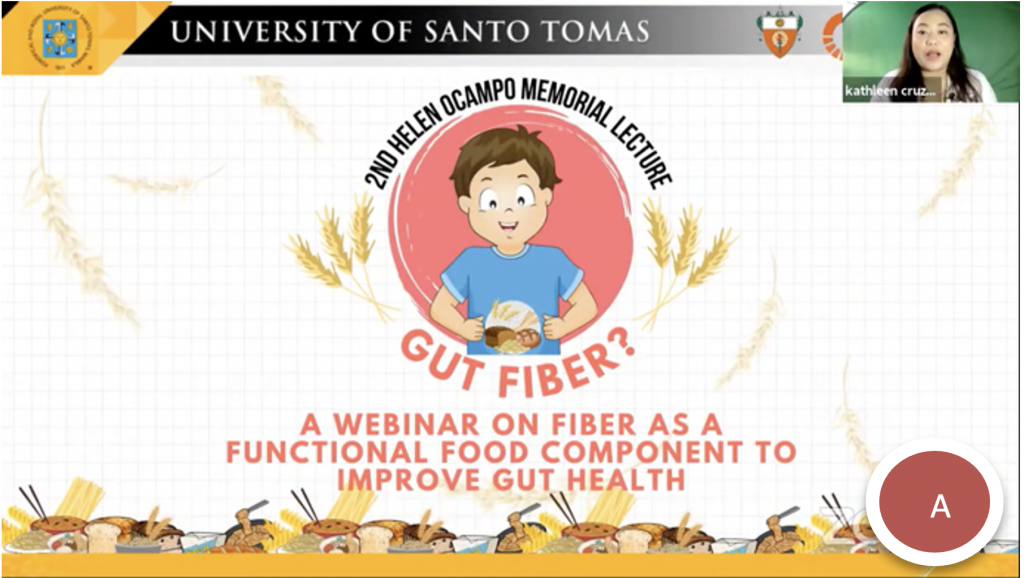On June 26, 2021 (Saturday), the Department of Food Technology and Department of Nutrition and Dietetics of the College of Education held the Second Helen Ocampo Memorial Lecture, with the topic “Gut Fiber? A Webinar on Fiber as a Functional Food Component to Improve Gut Health.”
Oklahoma State University’s Dr. Edralin Lucas presented the topic “Wheat germ, gut health and the prevention of obesity and insulin resistance.” Lucas gave a technical lecture about the gut, how food influences it, and how it contributes to the body’s homeostasis. In her talk, she shared her research studies on the beneficial effect of wheat germ supplementation in animals, focused on the gut microbiota, anti-inflammatory substance production, and glucose homeostasis markers, among others. Both the animal and human analysis showed that wheat germ can improve glucose homeostasis and attenuate the adipose tissue inflammation. The study also provided a rationale to use wheat germ as an effective and economical option to reduce insulin resistance. She ended her sharing with a quote from Anne Wigmore, “The food that we eat can be the safest form of medicine or the slowest form of poison.”

Asst. Prof. Cruzada moderates the session. 
Screenshot of webinar attendees
Dr. Azhar Mat Easa, who teaches at the University Sains Malaysia, talked about his study on “Making Noodles Functional.” Part of his discussion was about the various ways to make a food functional. He also mentioned the importance of considering the SGDs or the Sustainable Development Goals in making a food functional, as what he did with the noodles. The speaker considered in his study the 3 SDGs namely, the SDG 2 or the No Hunger, SDG 3, or Good Health, and SDG 12, or Responsible Consumption. He stressed that there are several ways in making food functional, and one of these is the addition of bioactive components, taking into consideration the process and formulation adjustment, and finally sustainability. He mentioned how he had come up with his SLIM (Sustainability-Led-Innovative-Mee) Project; “Mee” means noodles in Malaysia. He focused his research on the beneficial effect of insoluble fiber in the human gut, thus, giving rise to the idea of incorporating it into the noodles. He also noted that noodles are a staple food in his country.
The webinar was streamed via the YouTube channel of the College of Education. Over 500 participants composed of guest professionals, faculty members, and students from various higher education institutions attended the webinar.




